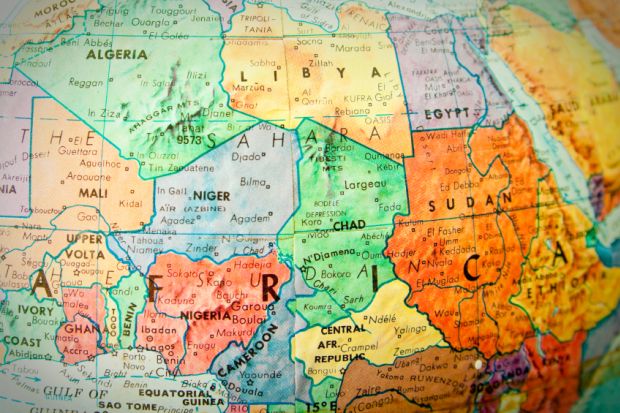From Nairobi to Lagos, Kampala to Harare, a new mood of confidence has taken hold as young Africans seek to transform the future with economic prosperity and social inclusivity.
The magnitude of the challenge cannot be exaggerated. Legacies of colonialism, bad governance, weak institutions and poverty continue to haunt many African nations, as does population growth. By 2050, Africa will be home to 2.4 billion people, half of them aged 20 or less. Wired to social media and with a global perspective that was simply not available in the past, much of Africa’s urban youth shares with their counterparts across the world a pragmatic, self-starting approach to life.
Nicknamed Generation Z, or the i-Generation, today’s young people are empowered, edgy and independent. Like others before them, many Africans continue to study abroad – some 17,000 start degree courses in the UK annually. At the University of Sussex, we asked some of Kenya’s and Nigeria’s brightest students what they valued in international education and how those lessons might shape their own and their countries’ futures.
As Abdul-Jabbar Momoh of AIESEC Nigeria (AIESEC is the world’s largest youth-led networking organisation) puts it: “Most of our problems are centred on the absence of leadership. Young people hold the key to the future, and it is important that youth development is taken as a topmost priority.
“As we strive for a better tomorrow,” Abdul-Jabbar continues, “let’s build youths who are values-driven, self-aware and solution-oriented.”
Those values echo with African leaders’ and national development agendas. Initiatives such as the Future Project, a pan-African programme that supports inclusive enterprise and active citizenship, aims to inspire young leaders across the continent.
And as Nigerian-based entrepreneur-philanthropist Tony Elemelu makes clear, building capacity among young businesspeople is central to his vision of sustainable development. According to Ciru Kariuki, an inspiring young journalist, youth development is delivering in spades. “Ambitious, confident and committed, young Kenyans are leading the way towards personal and collective progress,” she writes. “It’s an exciting and inspiring time to be in Kenya.”
Ciru is at the forefront of her generation. Brought up in an age of touchscreen technology, social media, global integration and multiculturalism – where even the son of a Kenyan immigrant can become president of the United States – today’s university students are the first true digital natives. More pragmatic than previous generations, they are independent self-starters, hyper-aware of global issues and technologically empowered for a digitally heavy world.
When we asked young Africans about their futures, the responses blended Ciru’s confidence with Abdul-Jabbar’s solution-oriented approach. Marketing gurus tell us that an emoji is worth a thousand words, but at Sussex, we still believe in the value of a critical essay. So we conducted a number of writing competitions across Africa during 2016. Hundreds of submissions later, and with the support of Education UK, corporate partners and the Writivism Literary Initiative, a cross-Africa network of fiction and non-fiction writers, we announced the champions of #Write with Sussex and #Writing Games.
Competition winner Urja Suchak from Oshwal Academy and runner-up Chidima Atueyi from Braeburn High School, both in Nairobi, told us that international education helped to demolish class, racial and ethnic boundaries.
Eager to bridge cultural and linguistic divisions, Urja stresses the importance of developing “multicultural literacy and leadership skills” to combat global problems of financial inequality and racial prejudice. For her part, Chidima believes that international education forges global awareness.
A committed community activist, Chidima praises the self-liberating potential of multiculturalism. “We no longer live in a segregated world,” she writes, but with education, globalisation and the information revolution, ignorance and national parochialism will fall.
Enormous difficulties remain: crippling inequalities of wealth, political corruption and chronic failures of civil society. But as the 2016 Writivism Short Story prizewinner Acan Innocent Immaculate writes in SunDown, even in a world of greed and social stratification, compassion survives.
Inspirational young Africans don’t have all the answers, of course, but their commitment to globally integrated education and indigenous development offers a new dawn for the continent. Let’s hope it’s not a false one.
Richard Follett is professor of history and director of international recruitment and development at the University of Sussex. Tosin Adebisi is senior international officer at the same institution.
The 28th annual conference of the European Association for International Education takes place in Liverpool from 13 to 16 September. The conference, which focuses on internationalisation and cooperation between European universities, will include seven sessions related to Africa.
Register to continue
Why register?
- Registration is free and only takes a moment
- Once registered, you can read 3 articles a month
- Sign up for our newsletter
Subscribe
Or subscribe for unlimited access to:
- Unlimited access to news, views, insights & reviews
- Digital editions
- Digital access to THE’s university and college rankings analysis
Already registered or a current subscriber? Login










